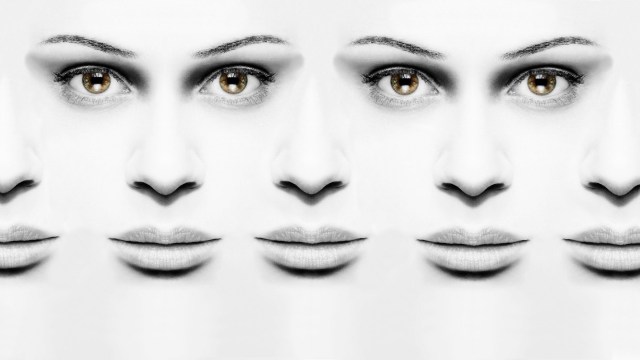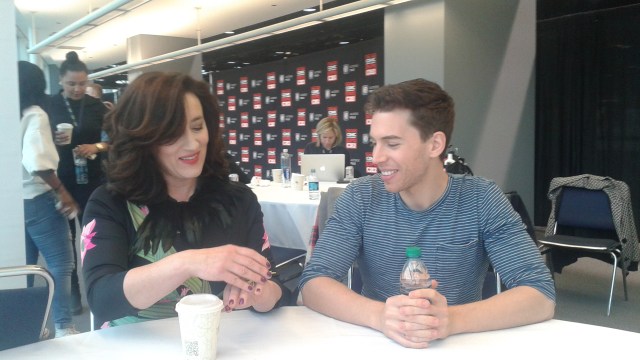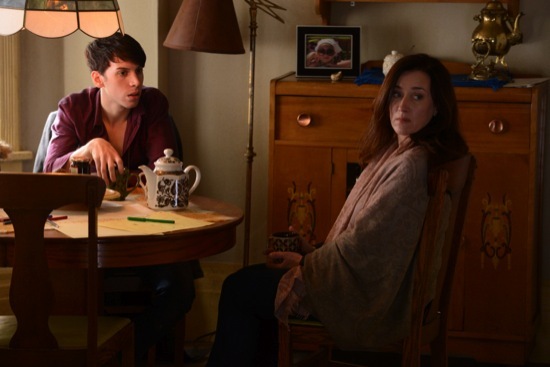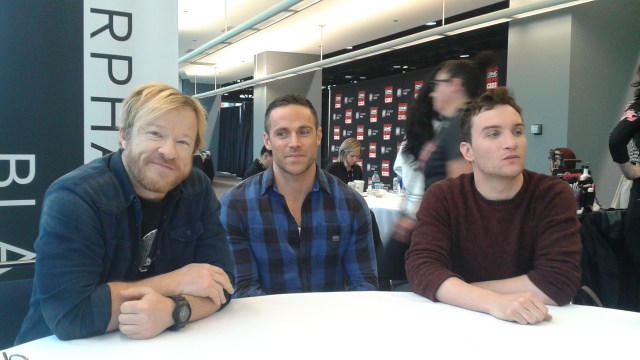The Mary Sue Interview: Talking LGBTQ+ Representation, Genre TV, and Fandom With the Cast of Orphan Black
"Just don't be a dick!'
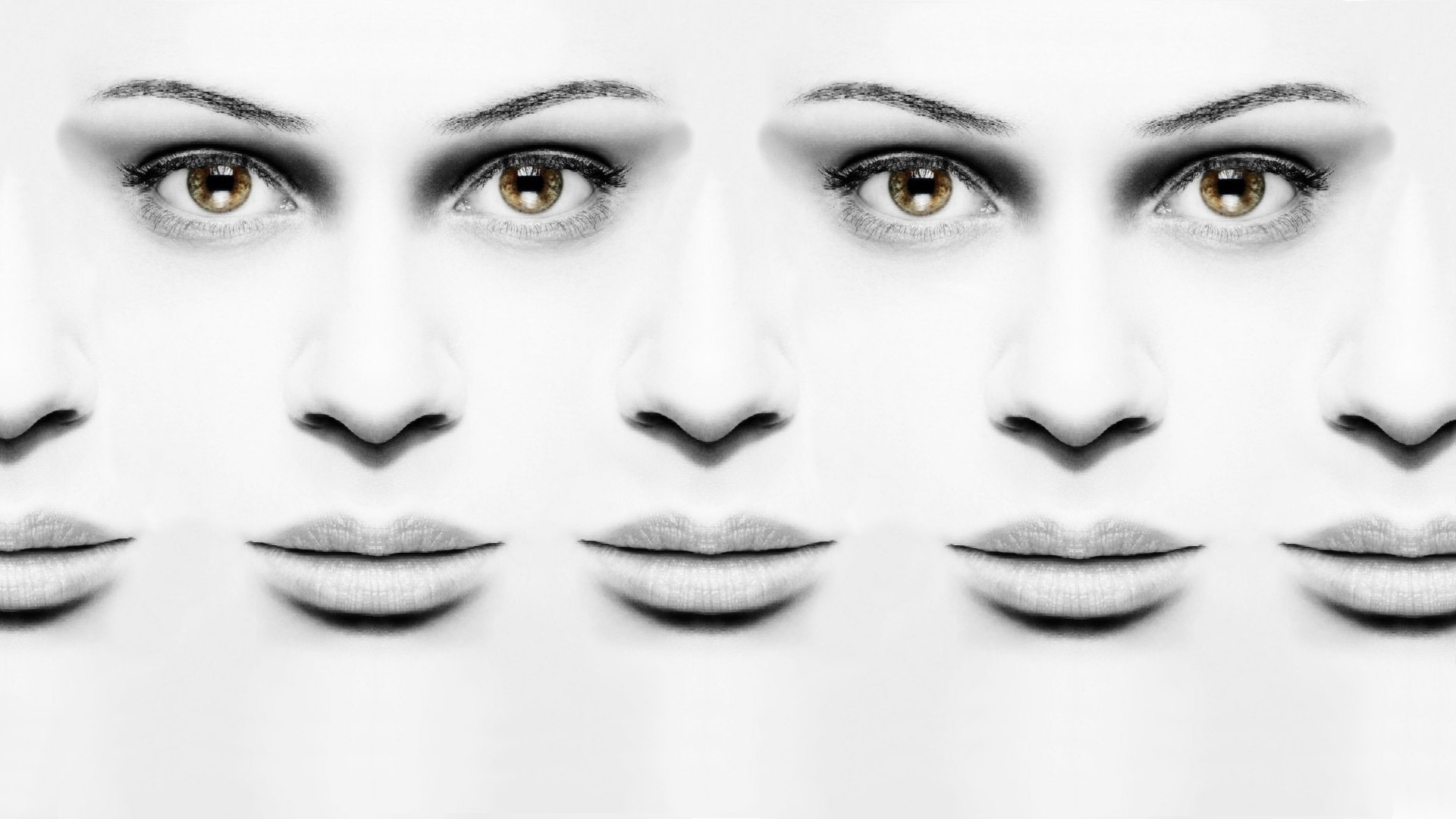
Over the weekend, The Mary Sue got a chance to sit down at C2E2 with Orphan Black’s Jordan Gavaris (Felix), the wonderful Maria Doyle Kennedy (Mrs. S), Dylan Bruce (Paul), Ari Millen (all the Castor Clones, yo!) and series co-creator and director John Fawcett—and the OB team was just as intelligent, gracious, and hilarious as we’d imagined.
The Mary Sue: Jordan, you’ve spoken in the past about the responses you’ve gotten from the LGBTQ+ community, both favorable and critical. Is that still a dialogue that fans want to have?
Jordan Gavaris: Absolutely. Probably the conversation has expanded; I think it expanded with the addition of Tony the clone, so it opened up to include the trans minority, which was something we hadn’t really had the opportunity to speak to. Myself and the cast and Maria, we’re all accidental activists and supporters of the gay community and LGBTQ awareness, it’s just something we take very seriously. And it’s not—responsibility has such a negative connotation to it, because it makes it feel like a burden, but there’s no responsibility in representing gay culture, it’s a joy. It’s a real joy to get to play people who are brave. The hardest thing in the world is to be who you are. To get to play somebody who is unabashed about who they are, it inspires you. It makes you brave in your work. It’s a source of inspiration.
Maria Doyle Kennedy: For me it’s not about gay rights, it’s human rights. We’re about to have a referendum in Ireland when I go home on May 22nd for marriage equality, and again, I just can’t understand how anybody would be against that. Obviously there are people who don’t understand, but it’s our job to make them understand.
Gavaris: I think there’s a lot of mythology about what a man or a woman is supposed to be, a lot of mythology about what gay men and gay women are supposed to be. There’s just a lot of storytelling surrounding human beings and what sexuality and gender identity means to your value. It’s all a lie. And it’s a lie we’ve been told for many many years, and it’s destructive and exclusionary and I resent it. If anyone’s ever in doubt about “oh, what’s the right course of action—”
Kennedy: Just don’t be a dick!
Gavaris: Don’t be a dick! And don’t exclude people! And if your message is something that excludes people, maybe do something different with that message!
Reporter: Mrs. S is such a strong character, and I think what they’ve done really well, the way you play the character, she’s vulnerable without looking weak. It’s very human and very real.
Kennedy: Well, I think also because she’s flawed! They’re all flawed! I mean, we empathize with them and I feel like we all have very strong moral compasses—is it compassi? Whats the plural?
Gavaris: Cumpi? That sounds disgusting.
Kennedy: But we’re flawed, I think that’s the humanity of it, it’s what makes it so attractive or identifiable to me, that I really feel we represent real humanity, the way people interact in a real way. I believe it.
Gavaris: I’ve been hearing this a lot lately, ‘there’s no room for nice in art.’ And I’ve been interpreting that to mean, you can’t have characters that are consistently noble. Humans are too flawed, too colorful, [there are] too many shades to human beings.
TMS: I think Orphan Black is one of the best shows out there (which is ironic I guess for a show about sisters) for celebrating non-nuclear families and the families we build ourselves. Is that something you feel has started to gel more as the show goes along and you guys start to know each other better as a cast?
Kennedy: I think that I’ve learned… I’ve never really been part of the sci fi community before, seeing things here like Comic Con and Wonder Con, the tribal identity of people who follow the show has been an extraordinary thing for me to see, and the Clone Club. People who come to these things and meet their people and find their tribe, that’s been a really interesting aspect of it to me, and incredibly… you know, Clone Club have made the show. We’re going to (well, hopefully) have another season because it’s the grassroots of the people telling each other about it, and letting people know. Now it’s gotten to the stage where lots of people are knowing it it but the tribal identity of it is what made it happen and go further. It’s incredible to see.
TMS: Ari, coming into a show that already had such an established, female-driven vibe, did you have any hesitation about playing all these new male characters?
Ari Millen: I think there’s always hesitation getting on any show, getting to do what you want to do for a living, but certainly this is and always will be for a long time—always—be the most exciting challenge that I ever got to do and certainly because it’s already been established and I wasn’t starting the first season, I was hitting the ground running and people knew what they were doing and I could fall back on them when I got lost, it certainly made things a lot easier. The majority of the time my scenes aren’t with Tatiana, so… she isn’t going to let any of us down, and she’s an incredible scene partner and just brings out the best in everyone, so no.
John Fawcett: It’s a strong season for the men. There’s no question about it. And that’s exciting, just to be able to do it, because we’ve been female-centric, and I think that’s awesome; it is what our show is. But it’s great to utilize the men in slightly stronger and different ways and see how Tat responds. It’s interesting when we start doing different things and challenging actors in different ways, how they respond. I think our whole cast kind of stepped up to this one in a big way.
TMS: I think some of the best sci-fi is very progressive, and I think Orphan Black falls into that category, it has such great representation. Was that conscious, or was it more like “I love this story, I love these characters” and it just happened organically?
Fawcett: I feel the same way about science fiction—I mean listen, I like all different sorts of sci fi. I like spaceship sci fi and fantasy sci fi, but I also like sort of very real sci fi that’s set kind of like now, when the science fiction is kind of happening amongst everyday people, and that kind of works well if you lay on this template of conspiracy or paranoid thriller. One of the things I think I always wanted to do with Orphan Black, what was important from the beginning, was to build characters that you would care about and invest in and that were really multifaceted, so that you could really believe that this would happen. If you can take a really dumb, absurd premise like cloning and actually believe it, that makes genre television really interesting and important.
————
You’re damn right! Check back at TMS later this week to see the cast talk relationship dynamics in Season 3, the Castor Clones and that scene (you know the one) from this week’s episode.
This interview has been edited and condensed.
—Please make note of The Mary Sue’s general comment policy.—
Do you follow The Mary Sue on Twitter, Facebook, Tumblr, Pinterest, & Google +?
Have a tip we should know? [email protected]
